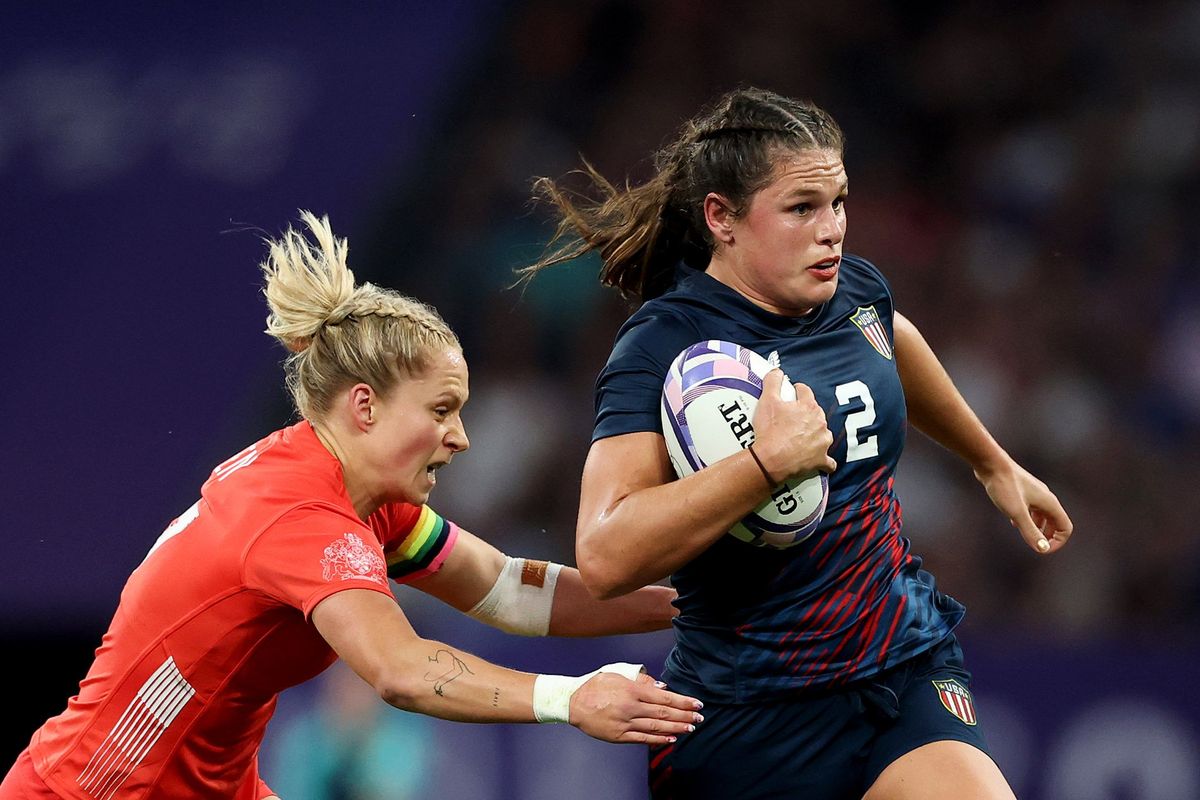‘There is a place for everyone on the pitch’: Records broken amid growth in women’s sports

Last Friday, Olympic rugby player Ilona Maher hit 1 million followers on Instagram. By Monday, that number had jumped to 1.6 million. On Wednesday, 2.1 million.
Maher has gone viral on Instagram and TikTok for her Olympic coverage. Videos show Maher and her teammates in the Olympic Village (or villa, as she called it in reference to reality television show Love Island) testing the infamous cardboard beds, taking pictures with Olympic correspondent Snoop Dogg, and exploring Paris in search of love.
She uses her platform to share body positivity and women’s empowerment – branding herself by the hashtag “beastbeautybrains” and wearing red lipstick as she pummels competitors on the rugby field.
Maher believes it’s important to recognize female athletes as capable of being feminine, a message which has resonated with millions of people.
“I absolutely love her,” said Melanie Quinn, a player for the Spokane Phoenix women’s rugby team, “I love the fact that she’s bringing light to our sport and that she’s also showing that there is a place for everybody on the pitch.”
Quinn has been playing rugby for 15 years, playing as a back in rugby fifteens. She started after college, when a friend encouraged her to try the sport. She fell in love with the tight-knit rugby community and hopes women athletes will encourage more girls to play sports.
“She’s showing us a part of professional sports from another female point of view. We’ve been lucky in recent history to see Serena Williams on tennis, Angel Reese and Caitlin Clark for basketball,” Quinn said, “I think it’s just showing that, hey, girls can do it, too. Here’s another sport that’s for everybody.”
Maher became the fifth most-followed USA Olympic woman on Instagram, according to SportsCasting, joining the ranks of athletes Simone Biles, Sha’Carri Richardson and Coco Gauff.
These women, and many more, are part of the 2024 Paris Olympics, the first year where women comprise 50% of all athletes. This year, 5,250 women and 5,250 men compete in the games.
The first time women competed in the Olympic games was in Paris in 1900. There were 22 women who competed in two events, according to International Olympic Committee data. One hundred years ago, at the 1924 Paris games, women made up 4.4% of competing athletes and were confined to “delicate” sports such as tennis and golf.
One can only imagine, 100 years later, how the 1924 Olympic committee would have reacted to Maher.
The U.S. women’s Olympic rugby team, for whom Maher plays as a forward, won bronze medals Tuesday at the games – the first time a U.S. team has made it to the Olympic podium in the sport. Quinn said they “kicked butt.”
The team success comes during a time of rising popularity in women’s sports – with the figures mentioned by Quinn bringing increased attention, popularity and revenue to women’s athletics.
An October 2023 study by Deloitte predicted professional women’s sports are expected to make more than $1 billion in revenue in 2024, which, if correct, would be a 300% revenue increase from 2021.
Quinn is one of many hopeful for the future of women’s sports, especially rugby, in Spokane.
“I think it’s just gonna continue to grow and hopefully, maybe, one day we can have a women’s professional rugby team.”
Quinn advises young girls getting into the sport to “be coachable.”
“The biggest thing in rugby is about a community and learning and being better,” Quinn said, “so take in what your coaches are saying and be willing to get dirty.”
Maher’s rise is part of a wider movement of focus on women in sports, and with the Olympics bringing equality across gender this year, the future of women’s athletics has never looked brighter.